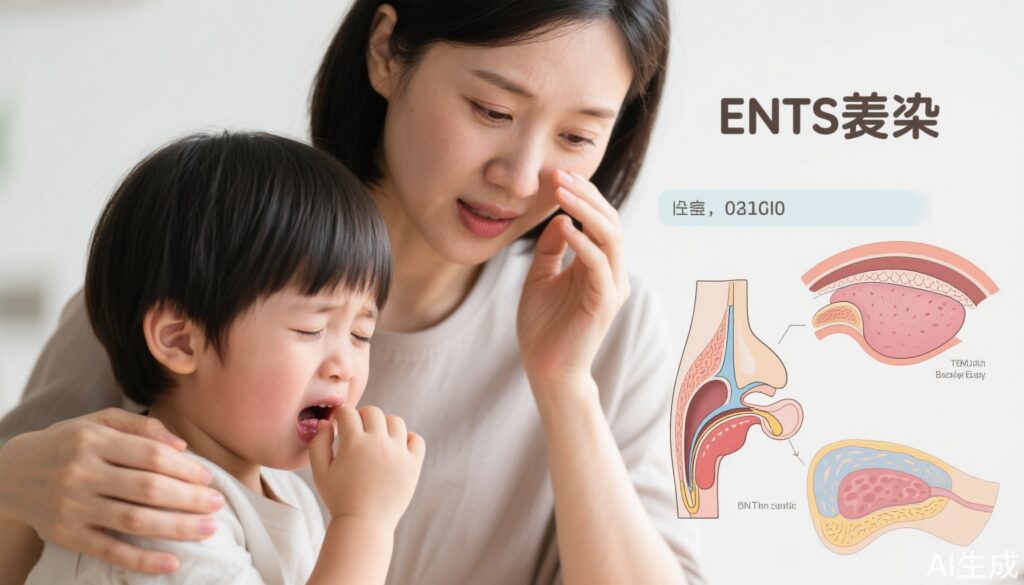Persistent Cough in Children: An Unlikely Culprit?
Coughing is one of the most frequent reasons parents seek pediatric care. While often attributed to common respiratory issues, persistent or recurrent coughs that do not respond to standard pediatric treatments may surprisingly indicate ear, nose, and throat (ENT) conditions.
Why Consider ENT Conditions?
When pediatric examinations, including blood tests, chest X-rays, and CT scans, fail to reveal abnormalities, and routine treatments prove ineffective, ENT diseases may be the underlying cause. Here are three common ENT-related conditions associated with persistent coughing:
Allergic Rhinitis
Allergic rhinitis often accompanies symptoms such as nasal congestion, itching, sneezing, and clear nasal discharge. Coughing tends to worsen during nighttime or early morning. Notably, allergic rhinitis is also a risk factor for asthma, with epidemiological studies showing that individuals with allergic rhinitis are 4–20 times more likely to develop asthma. Effective management of allergic rhinitis can significantly reduce asthma exacerbations.
Upper Airway Cough Syndrome
This syndrome arises from nasal conditions causing mucus to flow backward into the throat and airways, triggering cough. Often overlooked, it is a leading cause of chronic cough, especially in children. Symptoms are typically worse in the morning, with visible nasal discharge during examination. Treating the underlying nasal condition can alleviate the cough.
Chronic Tonsillitis
Chronic tonsillitis may develop from repeated acute infections or improper drainage of the tonsillar crypts, where bacteria and viruses accumulate. Symptoms include dry throat, itching, a sensation of a foreign body, and a reflexive cough. Streptococcal infections can exacerbate these symptoms. Management often involves maintaining oral hygiene and addressing bacterial infections.
Key Takeaways for Parents
If a child’s cough persists despite pediatric care, consulting an ENT specialist is advisable. Early diagnosis and treatment of ENT conditions can prevent complications and improve quality of life for affected children.


